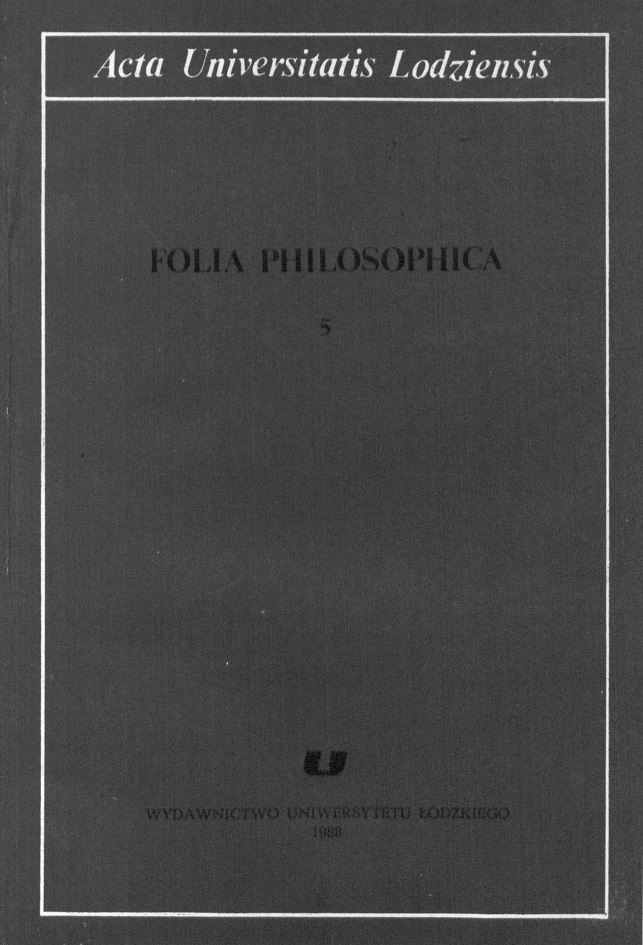Zdania elementarne w "Traktacie" L. Wittgensteina
DOI:
https://doi.org/10.18778/0208-6107.05.06Abstrakt
The article is an attempt at analysis of elementary sentences - one of crucial problems presented by Ludwik Wittgenstein in "Tractatus logico-philosophicus". This work, considered to be a breakthrough for 20th century philosophy is focussed on the problem of relations between the language and the world. The same problem was also touched by a great predecessor of L. Wittgenstein - G. Frege in his semantic works. Apart from many similarities, there can obviously be found also differences in views of both philosophers. The main difference is the problem of denotation of sentences. For Frege, denotation of a sentence is its logical value (that is why analyzing sentences from the viewpoint of their meaning, there can be distinguished only their two types - true and false). For Wittgenstein denotation of a sentence is the situation being described by it. Elementary sentences are a basic concept in the construction of "Treatise". Finding these sentences and indicating which are true and which are false allow to describe the world in an exhaustive way. This exhaustive description is possible owing to the fact that there exists a mutually explicit correspondence between the language and the world. Elementary sentences are base elements, for which a sequence of operations changing them in any other sentences of the language may be used later on.
Pobrania
Opublikowane
Jak cytować
Numer
Dział
Licencja

Utwór dostępny jest na licencji Creative Commons Uznanie autorstwa – Użycie niekomercyjne – Bez utworów zależnych 4.0 Międzynarodowe.












